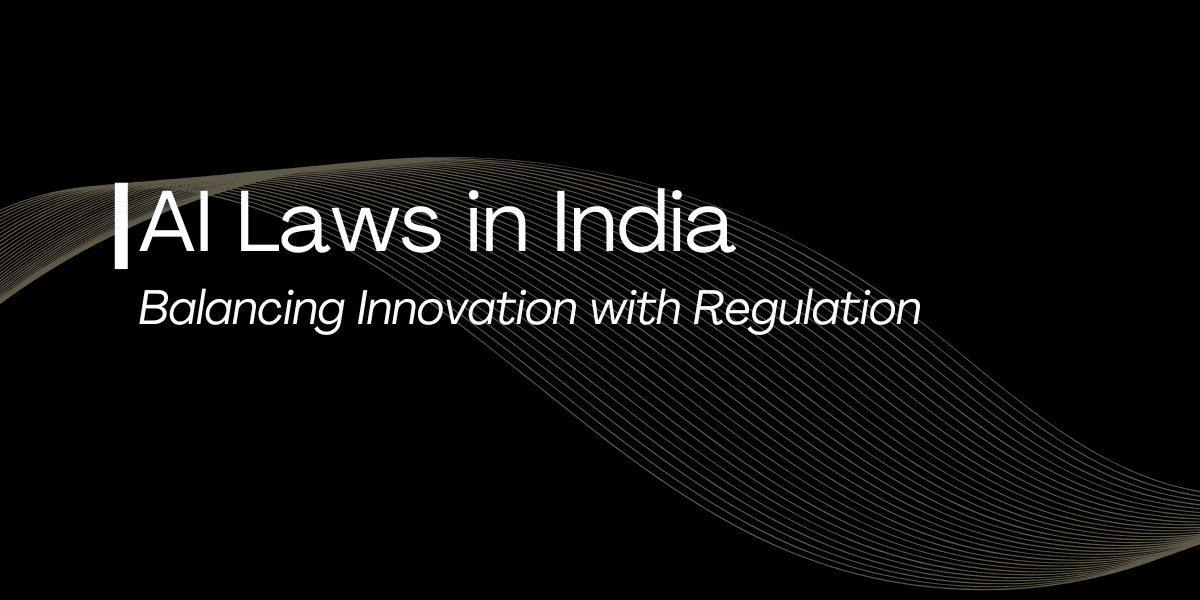Abstract
Artificial intelligence (AI) presents significant opportunities and potential risks for countries worldwide, and India is no exception. With a vast and growing high-tech labor force and substantial foreign direct investments, India is poised to become a major player in the global technology supply chain. As AI technologies penetrate industries like healthcare, technology, education, and the workforce, the Indian government is taking steps toward regulating AI.
While India has introduced initiatives and guidelines for responsible AI development and deployment, no specific AI-focused laws currently exist. This article explores India's regulatory landscape and the path forward.
Introduction
On March 1, 2024, the Indian government issued an advisory requiring platforms to obtain explicit permission from the Ministry of Electronics and Information Technology (MeitY) before implementing "unreliable Artificial Intelligence (AI) models/ Large Language Models/ Generative AI" for Indian users. Platforms are also mandated to:
- Ensure systems do not promote bias, discrimination, or compromise electoral integrity.
- Label all AI-generated content with unique identifiers or metadata for easy identification.
Generative AI, such as LegalSimpl.AI, can produce various content forms, including audio, images, videos, and text. Competing technologies like Google’s Gemini, Baidu’s Ernie Bot, Meta AI, and Microsoft Copilot (based on GPT-4) are reshaping content creation. These advancements underline the need for robust AI regulation.
AI Regulation Landscape in India
1. #AIforAll: India’s First National AI Strategy
In 2018, NITI Aayog launched #AIforAll, identifying key areas like healthcare, education, agriculture, smart cities, and transportation as national priorities. This strategy has laid a foundation for AI-driven growth through:
- High-quality datasets to support research and innovation.
- Legislative frameworks for data protection and cybersecurity.
2. Data Empowerment Initiatives
India views data as an enabler of innovation, fostering policies for anonymized data sharing for public benefit. While India’s Personal Data Protection Law incorporates key privacy principles, its limited scope allows publicly available data to train AI models.
Challenges remain, such as a lack of structured data in local languages, leading to bias. India must:
- Make digital content in local languages more accessible.
- Partner with other nations for data-sharing initiatives to align foundational AI models with Indian culture.
3. Compute Challenges
India’s ambition to enhance computational power ("compute") faces hurdles:
- High costs of advanced GPUs.
- Skilled labor shortages.
- Limited local infrastructure.
Policymakers must prioritize scalable, sustainable compute infrastructure and explore global access paradigms to drive innovation.
4. AI Model Strategies
India debates leveraging small, open-source models tailored to specific use cases versus proprietary, compute-intensive models. Historically favoring open-source policies, India's stance on adopting such systems for AI remains a critical decision.
Development Legislation in India
- In November 2023, Union IT Minister announced measures to counter deepfake threats, emphasizing detection, prevention, and public awareness.
- On March 1, 2024, platforms were advised to label AI models in trials and prohibit unlawful content.
- The IT Secretary, in May 2024, reassured stakeholders of balanced regulations to protect innovation and vital interests, akin to the Digital Personal Data Protection (DPDP) Act.
India’s Policy Initiatives
National Strategy for AI (2018)
The National Strategy for Artificial Intelligence (#AIforAll) focused on leveraging AI for social and inclusive growth. Key achievements include:
- Identifying five critical sectors for AI adoption: healthcare, agriculture, education, smart cities, and transportation.
- Launching AIRAWAT, a platform promoting AI R&D, ranked 75th in the global supercomputing list (2023).
Responsible AI Practices
In 2021, NITI Aayog introduced principles for safe, fair, and accountable AI systems, operationalizing these through actionable guidelines for ethical AI development.
Conclusion
India stands at the forefront of AI innovation, supported by strategic investments and evolving policy frameworks. However, challenges persist, such as the lack of AI-specific legislation to address ethical complexities, bias, and privacy concerns.
As AI reshapes industries, India's regulatory future must balance innovation with responsible practices, crafting laws that address societal impacts while fostering economic growth and technological advancement.
